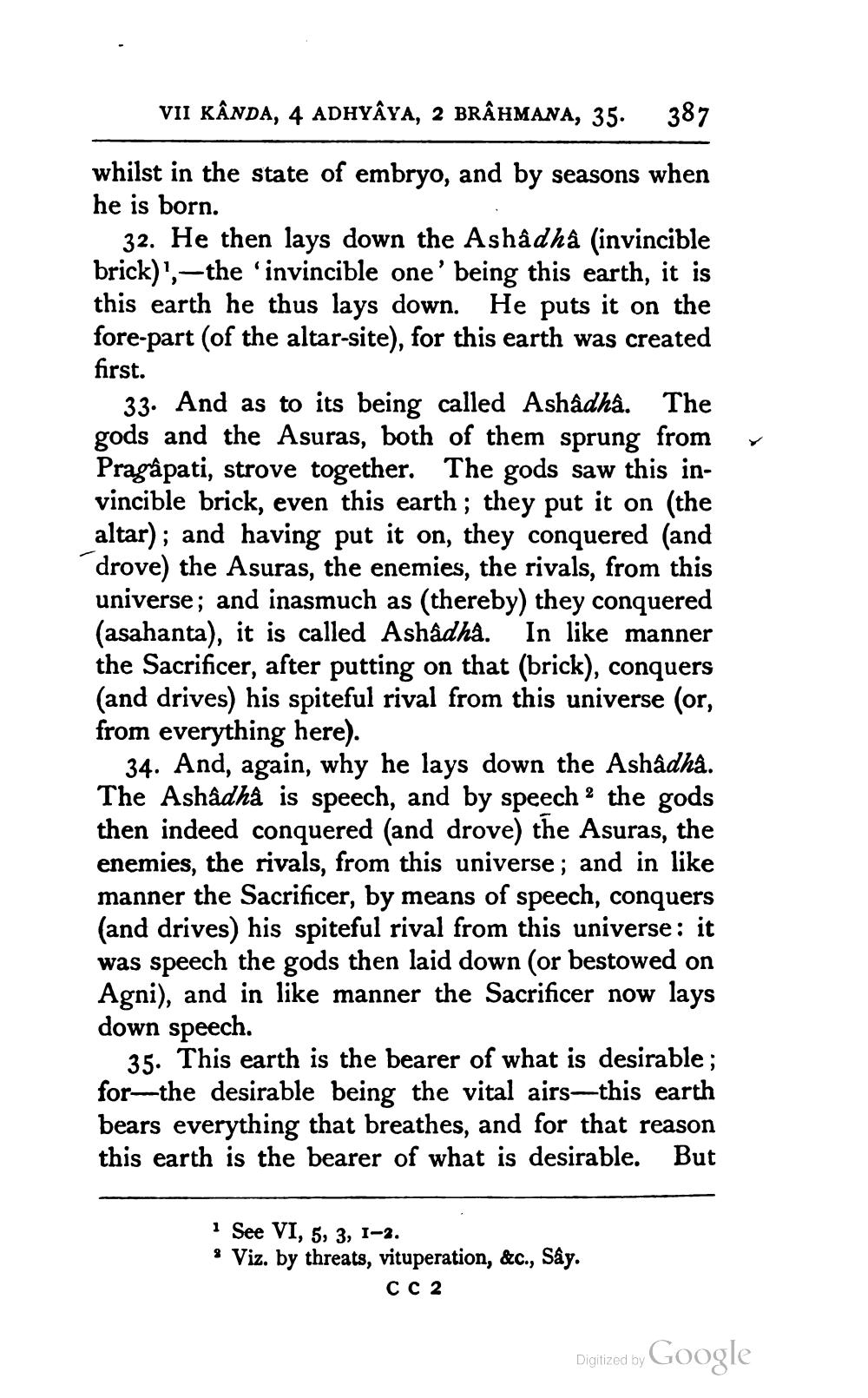________________
VII KÂNDA, 4 ADHYAYA, 2 BRÂHMANA, 35.
387
whilst in the state of embryo, and by seasons when he is born.
32. He then lays down the Ashâdha (invincible brick)', -the 'invincible one' being this earth, it is this earth he thus lays down. He puts it on the fore-part (of the altar-site), for this earth was created first.
33. And as to its being called Ashâdha. The gods and the Asuras, both of them sprung from Pragâpati, strove together. The gods saw this invincible brick, even this earth; they put it on (the altar); and having put it on, they conquered (and drove) the Asuras, the enemies, the rivals, from this universe; and inasmuch as thereby) they conquered (asahanta), it is called Ashadha. In like manner the Sacrificer, after putting on that (brick), conquers (and drives) his spiteful rival from this universe (or, from everything here).
34. And, again, why he lays down the Ashâdha. The Ashadha is speech, and by speech 2 the gods then indeed conquered and drove) the Asuras, the enemies, the rivals, from this universe; and in like manner the Sacrificer, by means of speech, conquers (and drives) his spiteful rival from this universe: it was speech the gods then laid down (or bestowed on Agni), and in like manner the Sacrificer now lays down speech.
35. This earth is the bearer of what is desirable ; for--the desirable being the vital airs—this earth bears everything that breathes, and for that reason this earth is the bearer of what is desirable. But
See VI, 5, 3, 1-2. • Viz. by threats, vituperation, &c., Sây.
CC 2
Digitized by Google




